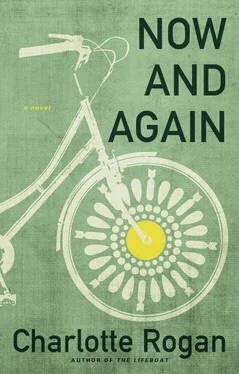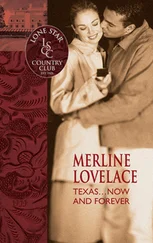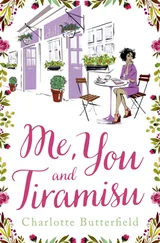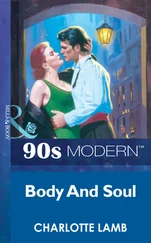They argued because Dolly thought he should wear his uniform to the party and Danny thought he shouldn’t. “It’s just what people will expect,” she said.
“How am I gonna play baseball in a uniform?”
“Okay, baby. Okay.”
Throughout the party, Dolly felt like she was trying too hard. She ran from the picnic area to the car and back again. She found stones to weight the tablecloths against the wind, and when people didn’t seem to be mingling, she passed out some of the sparklers. Then she turned on the CD player she had brought with her and danced frantically around. She got one of Danny’s friends to make a toast, enlisted Tula and Will to drum up support for the baseball game, and then she pretended to drop the ball when Danny hit a fly right to her. “Home run!” she cried, forgetting for a minute that she shouldn’t be rooting for Danny’s team.
Danny trotted around the bases and put his arms up in the air, but his heart didn’t seem to be in it, and he immediately put them down again. Danny’s brother passed out a round of beers between each of the innings, and as the game wore on, it began to seem as if something more than bragging rights was at stake. One by one, the women dropped out until it was only the men winging balls back and forth and stumbling around the bases and whacking aluminum bats at each other in the fading light.
When it was too dark to continue, someone made a bonfire in a garbage can to burn all of the party debris, and then they had a contest involving the rest of the beer until the police came and told them to shut it down. “Park closes at dusk,” said the officer. “Can’t you read the sign?”
“He’s a war hero,” said Will, pointing to Danny. Flames were shooting out of the garbage can and turning the assembled faces orange. Now and then someone would throw in a box of sparklers, and bouquets of silver sparks would blossom and hiss. Danny stared into the fire as if he was hypnotized, and later on Dolly saw a girl grab him and kiss him, but she forgave him. She forgave him right away.
“I shouldn’t have bought so much beer,” she said as the women tried to corral the men and drag them off.
A woman named Kathy, who had come with one of Danny’s military friends, said she’d be happy to meet for coffee if Dolly ever wanted to talk.
“About what?” asked Dolly, but in her heart she knew what Kathy meant.
“About what to expect. About making sure you and Danny are on the same page.”
Over coffee, Kathy suggested that Danny and Dolly make lists of things like core beliefs and life goals. Then they could use the lists as planning tools for the future. “We also have a house rule that says we have to give two compliments before we say anything critical, so Mike has to tell me the dinner was good and my hair looks nice before he can tell me to shut the fuck up.”
“Danny doesn’t talk like that,” said Dolly, which was one of the things that made her think things were going to be okay, even if one of the things that made her think they weren’t was that Danny could go for a long time without talking at all.
That evening Dolly told Danny that even though they had both changed, they still had a lot of things in common.
“Like what?” asked Danny.
“Life goals,” said Dolly. “Not to mention core beliefs.”
She got two sheets of paper and two felt-tip pens and said they were going to write down ten things that were essential to a strong relationship.
“Nouns or adjectives?” asked Danny.
“We’ll start with core beliefs,” said Dolly, “so I guess that’s nouns.” She felt vindicated when many of the words on the two lists matched. “You see?” she said. “We both believe in honesty and love and brotherhood and respect.”
“You wrote down brotherhood?” asked Danny.
“I did,” said Dolly. Kathy had told her how important brotherhood was to soldiers, which is why she had included it on her list. Besides, anything important to Danny was important to her, so it wasn’t a completely dishonest thing to do. But the other words came from her heart. One of the most important words on Dolly’s list was “family,” and she was disappointed and a little shocked that the word was missing from Danny’s list. But perhaps to Danny, family was a life goal, and she had been clear that they were going to concentrate on beliefs first. Still, there was enough agreement that she could use the lists to prove her point.
“What was your point again?” asked Danny, so she repeated her speech about building a future together based on common values. “Our core beliefs are the foundation. Our goals are the engine.”
“Are you building something we can live in or something we can drive?” asked Danny, laughing.
“You know what I mean,” said Dolly. Then she laughed a little too. “Keep your sense of humor,” Kathy had said. “As long as you can laugh together, you have a fighting chance.”
“See, honey? Sixty percent of our core beliefs are identical.”
“I only put ‘God’ on my list because I knew he would be on yours,” Danny told her the next day. “And ‘peace.’ I put that down because you look like a jerk if you don’t believe in peace. I mean, what am I going to write — that I believe in war?”
But love was first on both their lists, and that had to count for something. Danny hadn’t mentioned marriage since he got home, and Dolly was eager to see what his goals list looked like, but she didn’t want to rush it. Both Kathy and the counselor at the VA hospital said the most important thing was for her to be understanding and the second most important thing was patience. “We’ll work on goals next,” she said, “but we have plenty of time for that.”
5.7 Will
That summer the big news in Red Bud was that McKnight’s was switching to organic, free-range chicken. “There’s money in doing the right thing,” said Bill McKnight when Will showed up for the first day of his summer job. “So anything you can do to make people feel sorry for the non-organic chickens will be really good for us.”
“Okay,” said Will. “Sure thing.”
“If this doesn’t work out, I’ll have to contract with a big conglomerate, and half the independents who do that go out of business within three years.”
“You can count on me,” said Will.
A man with a blowtorch came to cut little holes in the sides of the aluminum chicken barns that ran like barracks over a forty-acre patch of ground on the west side of town. Inside, the doors to the chicken cages were wired open, and if a chicken got up the gumption to exit the nesting box that was all it had known since being moved from the hatchery, it could theoretically hop down to a sawdust walkway and make its way, right or left, to one of the newly cut openings. And, if it found the nerve to step through the opening, it might enjoy a little morning or afternoon sunshine, depending on which side of the barn the chicken found itself and at what time of the day it had chosen to venture out. It might even peck at a piece of honest-to-goodness ground if it didn’t first die of fright at its encounter with the unknown, for chickens were not known to be courageous.
In all of June and July, Will never saw a chicken take advantage of this opportunity, but he liked it that the doors were there. It was a poultry version of the American dream, for all that was promised to Americans was the freedom to pursue happiness, not happiness itself, and it gave him a little frisson of excitement to think ahead to graduation, when he and his classmates would file up to the opening in their own lives and some of them would step right through it and a few of them would fly away.
Because he didn’t have a car, Will rode a bicycle to McKnight’s in the morning, and after work he rode it to practice for his summer baseball league. His afternoon route took him near the Ash Creek part of town, where Tula lived. If he had time, he liked to circle past her little ranch house so she could sit with him while he ate the extra sandwich his mother had packed because it was too far to go all the way home to eat.
Читать дальше












